I began working in the flexible office sector some 20 years ago and even then I could see its potential to support how people actually wanted to work: flexibly and on their own terms.
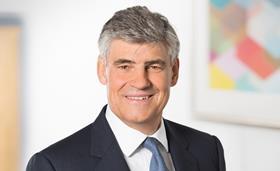
2018 has been a big year for Landmark. The last 12 months have seen many of our ideas for the business come to fruition, including a successful rebranding and significant growth, as well as the rollout of a new design concept and approach to customer service. As we head into the new year, we feel confident that – Brexit or no Brexit – we have developed a robust, resilient business model.
In February 2017, what was then known as Landmark plc was bought by i2 Office, which at the time was a far bigger company. Following the acquisition, we spent several months effectively running the two businesses as separate entities while we worked up our strategy for the company in the medium to long term. After extensive research, we came to the conclusion that the Landmark brand was both better understood by customers and more aligned with the professional working proposition we wanted to project.
As a result, in January this year we relaunched the combined business under the Landmark banner. That involved developing and designing a whole new suite of marketing and branding materials, as well as a new website. However, the work that went into the relaunch went far deeper than that. As part of the brand realignment programme, we also introduced new values, new ways of working and new ways of dealing with our customers.
Of course, at the centre of the strategy are our centres, which have to have the ‘wow’ factor. In order to achieve this we introduced our ‘zoning’ approach to design, which allows our clients to access multiple different types of workspace under one roof. Needless to say, traditional office space is part of the offer, but we also provide social spaces in which customers can relax, enjoy a cup of coffee or get something to eat.
In addition, our centres feature collaborative space where people can meet to discuss ideas or plan projects in an open, unstuffy environment, as well as more formal meeting rooms – from rooms designed to allow small groups to work intensively and privately to executive-style boardrooms. Critically, we also offer quiet spaces for individuals who need to concentrate, whether that’s on a business-critical email, report or presentation.
This, we believe, is a trick that many of our competitors miss. There is a lot to be said for open, collaborative space, but it is not appropriate for all people all the time.
The first business centre created using our zoning concept was in Victoria, which was joined in quick succession by our New Cavendish Street centre. Obviously, we had confidence in the concept or we would not have expended so much time, energy and resources making it a reality. Nevertheless, the reaction we had from our customers this year still managed to take us by surprise.
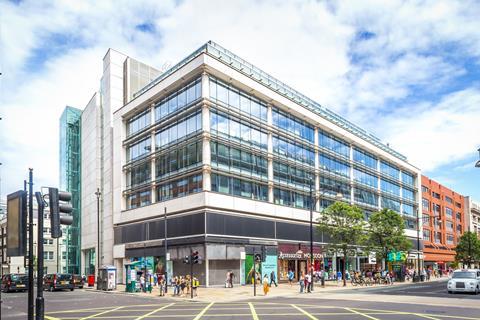
Quite simply, they loved it. Customer surveys have revealed that people believe that the mix of spaces is helping them to become far more efficient and productive, which given the well-known problem the UK has in terms of productivity is highly encouraging. The result is that we have embarked on a major refurbishment programme in our existing centres. By the end of the calendar year, we will have completed 11 refurbishments and by the end of June 2019 the programme will be complete.
Centre of retention
Quite apart from the positive feedback, the zoning approach has already had an impact in terms of numbers. We have always enjoyed high levels of customer retention, but our new approach to design has taken that to the next level: where previously we had retention rates of more than 70%, today the figure stands above 80%. What’s more, as our refurbishment programme continues to deliver, we expect retention to improve further.
However, when we were embarking on the rebranding and relaunch of the business, we knew that the physical spaces we provide would only take us so far. In order to truly set ourselves apart from the competition, which in the flexible office market is only becoming more intense, we wanted our customer service to be known as being second to none.
In order to achieve this, we are currently going through the process of becoming endorsed by the Institute of Customer Service (ICS). This is an unusual move in the flexible office sector. We know that other companies have done it in the past, but those companies have since been swallowed up by Regus. So far as we are aware, we are currently the only business in this space that is gunning for ICS accreditation.
What that involves is a highly ambitious training programme, which to be frank is a pretty onerous process. One of the things that marks it out is that it’s a ‘train the trainer’ model. In other words, six of our people have been trained by the ICS to become fully fledged, signed-off trainers to deliver their courses. We wanted to do that because we believe that it becomes more real and more credible if it is being delivered by some of our own people.
What’s more, it is a good development opportunity for our employees, which aligns with Landmark’s dedication to supporting its staff in terms of their professional development. The investment also makes sense for our growth strategy: as we acquire more sites it is more efficient in terms of training new staff members if that training can be delivered by Landmark itself.
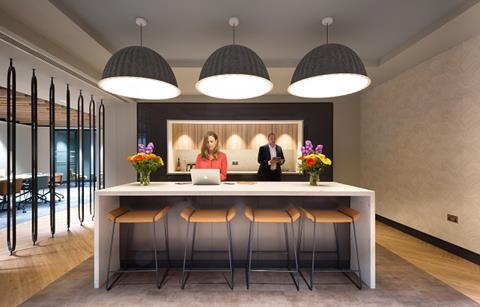
As we head into the new year, the six Landmark employees have been fully trained up and are in turn leading modules with the rest of our staff. Our ambition is to achieve full ICS accreditation by the end of 2019. We have to jump through a lot of hoops and over lots of hurdles in order to meet the criteria, and the ICS will survey our customers directly. So, it’s not easy and nor should it be.
The last year has also seen us grow in line with our business plan, which is to add 15% of additional floorspace year on year. A particularly satisfying milestone was reached this year, when we surpassed the 1m sq ft mark. We are also committed to further growth and will be looking at opening at least six buildings next year, which will take our centre count over the half-century mark.
That growth will be supported in no small part by the fact that this year we rolled out the Salesforce operating system across our entire business in May this year, providing a single platform for the business for the first time since the acquisition. Adding new centres on to this new platform will be very easy and will give us better customer management information, which will also help us to improve our service delivery.
So, the outlook for us in 2019 is about further growth. We are not complacent, though. We know that Brexit – and we aren’t about to pick sides or be hubristic enough to predict an outcome – could yet deliver some very strong headwinds. But we know from the 2008 global financial crisis that both our sector in general and our business model in particular are more resilient than most. In short, we are looking ahead to next year with confidence.
John Spencer, chief executive, Landmark
About Landmark
Landmark, a leading provider of professional workspaces, is taking the serviced office market by storm. Going from strength to strength, with new buildings across the City and West End, it has big ambitions to grow, offering a different proposition to many of the current players. With a 15% growth year on year, it now has more than 1m sq ft of office space with 44 buildings in London and across the UK. With a 75% client retention rate and the introduction of a new service model in the last year, customer service is at the heart of what Landmark does.
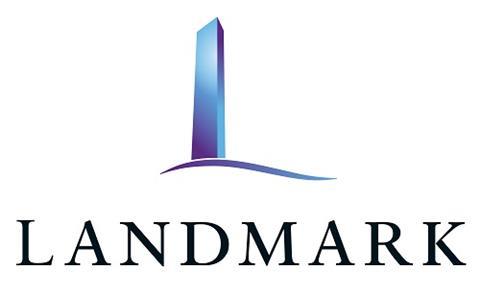
PW Perspectives: new opportunities and risks in evolving market
- 1
- 2
- 3
 Currently reading
Currently readingLandmark’s rebrand is a resounding success
- 4
- 5
- 6





























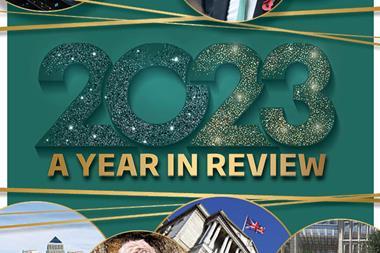



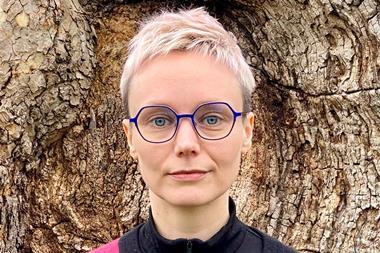
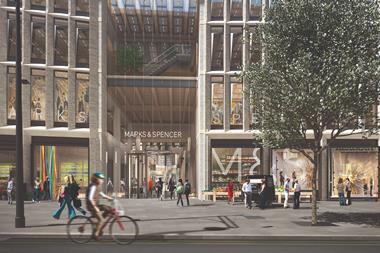
No comments yet